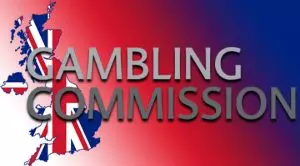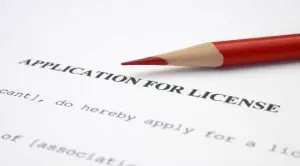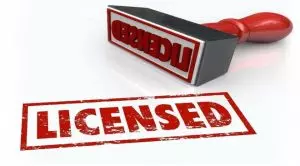 As Casino Guardian has explained in earlier publications, the UK Gambling Commission (UKGC) is the competent regulatory body entitled with the responsibilities related with the licensing procedures on the territory of the country. Currently, there are three types of licences that could be issued to gambling businesses in the UK and depending on the company’s activities a single operator may need all three types of licenses.
As Casino Guardian has explained in earlier publications, the UK Gambling Commission (UKGC) is the competent regulatory body entitled with the responsibilities related with the licensing procedures on the territory of the country. Currently, there are three types of licences that could be issued to gambling businesses in the UK and depending on the company’s activities a single operator may need all three types of licenses.
The three types of licences are: an operating license, a personal management licence and a premises licence. The first two of them are issued by the UK Gambling Commission, while the premises licence is issued from the operators’ local licensing authority. When it comes to remote gambling, which could be operated either over the Internet, or though other means, or the operator would like to advertise its services to local consumers, the company also needs a licence issued from the Britain’s regulatory body.
The licensing authorities in the country are also entitled with the right to take care of lottery registrations, too. Issuing gambling licences for various establishments for low-level gambling such as clubs or pubs is also taken care by the local licensing authorities.
So, once the business owner has found out which type of licence they need, they are required to apply for a licence. Operators should also be aware of the fact that there is an application fee that is to be paid. In order to make the procedure more comfortable for gambling operators, the UK Gambling Commission has made sure there is an option for filing the application online, through its e-Services.
Information Gathered by UKGC
 When filing the operation licence application online, companies and business owners are required to prove their identity first. They would also be required to provide the identity documents for the business as well as a number of supporting documents describing the business, related to the organisation and management structure, the relationships within the group, etc. If the company owns any gambling licences issued outside the UK, it must present these, too.
When filing the operation licence application online, companies and business owners are required to prove their identity first. They would also be required to provide the identity documents for the business as well as a number of supporting documents describing the business, related to the organisation and management structure, the relationships within the group, etc. If the company owns any gambling licences issued outside the UK, it must present these, too.
Also, in case that the company is a foreign one, the UK Gambling Commission requires from the operator to provide a contact address in the UK. There is a special Disclosure and Barring Service form for the ones who have a contact address in England or Wales, as well as a Disclosure Scotland form for the ones who have a contact address in Scotland.
Once the company has provided the UK Gambling Commission with the entire set of documents and filled-in forms, a non-refundable application fee is required to be paid. The fee depends on the licence type which the gambling operator applies for.
Licensing Procedure
In order for their application to be reviewed by the UK regulatory authority, companies must send the UKGC the originals or scan and upload the certified copies of the above-mentioned documents directly on the regulatory body’s website.
The operators should be aware of the fact that the process normally takes around 16 weeks, if that all required information and documents have been presented. In case that the company has failed to provide all the required information, the application will be delayed.
Operators who have applied for more than one type of license in the country, get a discount. However, business owners should bear in mind that in order to get the discount, they need to file their licence applications as the same legal entity.
Operators are also required to send their Disclosure and Barring Service certificate as soon as possible, otherwise their application will be delayed.
At the end, a confirmation letter with the account number of the gambling operator is to be sent by the UK Gambling Commission.
Assessment Procedure
 After all required information and documents, the experts at the UK Gambling Commission make a consideration whether the operator’s business is sustainable and suitable enough to carry out the licensing objectives and activities the operating licence will permit.
After all required information and documents, the experts at the UK Gambling Commission make a consideration whether the operator’s business is sustainable and suitable enough to carry out the licensing objectives and activities the operating licence will permit.
The suitability of the company for the regulated UK gambling market is considered under a number of requirements.
First, the Identity and Ownership of the company is assessed by the UK Gambling Commission. Then, both the past and present Financial circumstances of the business are considered, as well as the Competence and Integrity of the company. The UK regulatory body finds it important that gambling operators who set foot in the country’s regulated market should be honest and trustworthy. For them it is also important to be qualified and experienced in what they do in order for them to make sure that local customers are provided with the best quality and gaming experience.
Of course, the Criminal record of both the operator and all people relevant to the application will also be reviewed and assessed by the Commission. The Licensing objectives are also thoroughly reviewed by the UK regulatory authority in order for the Commission to make sure that the company understands the pieces of legislation and complies its policies with them, so that it meets the Commission’s social responsibility requirements.
License Duration
After their license is issued, operators need to make sure they keep it in a safe place, so that they are able to present it whenever demanded.
The licence issued by the UK Gambling Commission will last for indefinite period of time, unless it is revoked or suspended by the country’s regulatory body. Also, it will be ended in case that that operator itself decides to surrender it. A gambling company’s operation licence could also lapse due to death or bankruptcy, or it could also be forfeit in case that a local court orders such actions.
Annual Fees
Annual fee is required to be paid by the company in order to make sure that its operating licence remains valid. The first time when the annual fee of each gambling operator is due, is 30 days after the licence has been issued. Then, it is due on an annual basis.
The Gambling Act of 2005 has set a requirement for gambling operators in the country to fully pay their annual fee before the date written on their operating licence. In case a business does not do that, the UK Gambling Commission will revoke its licence. If this happens and a company’s operating licence is revoked by the Commission but the company wishes to continue operating, it will have to re-apply for a new licence.
Operators have various ways to pay their annual fee. They could choose to do that either online via the eServices offered by the UKGC, or at post, at Barclays Bank, by phone using a credit or debit card.
- Author


